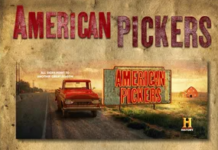If you have a sore foot, you don’t want your doctor to treat you for a headache. If you have a stomachache, you don’t want your doctor to put a cast on your hand.
The treatment should be driven by the precise diagnosis.
Such is the case in modern agriculture, where farmers are recognizing that different types or amounts of soil treatments can be applied more precisely exactly where they are needed. Today we’ll meet a company that is helping farmers use data to apply their inputs in a more efficient, effective and environmentally friendly way.
Landon Oldham is the founder and owner of Heartland Soil Services, headquartered in Cunningham with representatives in several other Kansas towns. Landon grew up in Cunningham, working for multiple farmers in the region. He met Vicki in grade school and they would eventually marry. He earned a degree in agribusiness at K-State.
During and after college, he worked for a Missouri company installing precision agriculture equipment. “It seemed to me that there was a missing link,” Landon said. “Farmers needed more data in order to use those systems to their full potential.”
He saw how more information would help farmers use this equipment more effectively and thought there might be a business opportunity there.
“It was the end of 2009,” Landon said. “My wife was eight months pregnant with our first child and we had signed a contract on a house. I told her my idea and she said, `Yes, it could work.’ I said, `Well, I hope it does, because I quit my job today.”
It was a leap of faith, but that was the beginning of Heartland Soil Services. Today, Heartland Soil Services specializes in soil sampling, yield mapping, imagery, irrigation management tools, variable rate seeding and fertilizer prescriptions, and end of season data analysis. This is useful for precision agriculture, which means applying precise amounts of field inputs only where needed and in the amounts needed.
In previous decades, farmers might apply blanket amounts of fertilizer to their fields. Heartland Soil Services can gather the data to enable farmers to adjust their field applications according to nature’s needs. The process begins with testing soil samples from a field.
“Unless you test, it’s just a guess” is a Heartland Soil Services motto. The soil tests indicate what nutrients are needed where.
“Our field technician will physically drive the boundary of a field, lay out a grid map, and pull (soil) core samples for testing,” Landon said. The samples are tested in a lab and the results are entered into the Heartland Soil Services software system.
“From that, we create a soil surface nutrient analysis and product recommendation,” Landon said. “Those recommendations are specific to that crop, that field, that grower, and that acre,” he said.
The analysis covers both major and micro-nutrient needs. Furthermore, he said, that information can be loaded onto a thumb drive that can be plugged into the equipment so that inputs can be applied at various rates as needed in the field.
When Heartland Soil Services’ system was first developed in 2013, the data files were too large for practical use. “We built our own file storage and transfer system,” Landon said. Now, Heartland Soil Services offers several services including DataFarm, which allows producers or co-ops to download files into a tractor or to control a spreader or sprayer.
“The data is accessible on a cell phone,” Landon said.
Heartland Soil Services works with USDA’s Natural Resources Conservation Service on a program called FarmComp, which compiles and formats data that farmers need to submit in order to comply with soil and water conservation programs.
All this creates a modern, high-tech way of farming that is good for the producer and the environment. It’s great to find this cutting-edge business in a rural community such as Cunningham, population 454 people. Now, that’s rural.
For more information, see www.heartlandsoilservices.com.
We commend Landon Oldham and all the people at Heartland Soil Services for making a difference with their innovative, high-tech approach to farming. Can their system help a farmer and the environment? Precisely.
Audio and text files of Kansas Profiles are available at http://www.kansasprofile.com. For more information about the Huck Boyd Institute, interested persons can visit http://www.huckboydinstitute.org.
-30-
The mission of the Huck Boyd National Institute for Rural Development is to enhance rural development by helping rural people help themselves. The Kansas Profile radio series and columns are produced with assistance from the K-State Research and Extension Department of Communications News Media Services unit. A photo of Ron Wilson is available at http://www.ksre.ksu.edu/news/sty/RonWilson.htm. Audio and text files of Kansas Profiles are available at http://www.kansasprofile.com. For more information about the Huck Boyd Institute, interested persons can visit http://www.huckboydinstitute.org.
K State Research and Extension is a short name for the Kansas State University Agricultural Experiment Station and Cooperative Extension Service, a program designed to generate and distribute useful knowledge for the well being of Kansans. Supported by county, state, federal and private funds, the program has county extension offices, experiment fields, area extension offices and regional research centers statewide. Its headquarters is on the K State campus in Manhattan. For more information, visit www.ksre.ksu.edu
Column by:
Ron Wilson
[email protected]
785-532-7690





